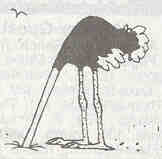 If I apply the idea of a MoneyBall baseball player to a MoneyLaw faculty hire I come up with a candidate who did not attend a prestige school, is not smooth in a “good old boy/girl” way, does not come from a background of privilege, radiates no sense of entitlement, did not practice for a big firm, does not whine or boast, and has done research and writing for the love if it as opposed to filling up lines on his or her resume at the instruction of a mentor whose name is instantly recognized in our incestuous world. Obviously, candidates who do not fit all of these characteristics can be just as productive and I added some of my own preferences for greater socioeconimic diversity. The point, however, is that the MoneyLaw candidate (however defined) is undervalued in the market.
If I apply the idea of a MoneyBall baseball player to a MoneyLaw faculty hire I come up with a candidate who did not attend a prestige school, is not smooth in a “good old boy/girl” way, does not come from a background of privilege, radiates no sense of entitlement, did not practice for a big firm, does not whine or boast, and has done research and writing for the love if it as opposed to filling up lines on his or her resume at the instruction of a mentor whose name is instantly recognized in our incestuous world. Obviously, candidates who do not fit all of these characteristics can be just as productive and I added some of my own preferences for greater socioeconimic diversity. The point, however, is that the MoneyLaw candidate (however defined) is undervalued in the market.Being undervalued is one thing but what if the undervaluation is not simply the result of market imperfections and self-referential, possibly narcissistic, hiring practices? I mean, is it possible that, just to make sure the undervalued MoneyLaw candidate stays that way, the privileged make a point to disparage the product.
 I am ahead of myself here because the MoneyLaw candidate has to get interviewed in the first place and this is not easy. Sometimes a small committee that is not overloaded with elitists can be shamed into inviting a MoneyLaw candidate. Other times, quirky things happen that permit them to sneak in. One current professor at another school realized that he interviewed at the hiring convention with a school that did it as a courtesy after mistakenly scheduling him. He ended up getting an offer. In other instances, candidates who are otherwise MoneyLaw candidates are mistaken – because of a name, an entry on the resume, or a mix up – for a different type of candidate.
I am ahead of myself here because the MoneyLaw candidate has to get interviewed in the first place and this is not easy. Sometimes a small committee that is not overloaded with elitists can be shamed into inviting a MoneyLaw candidate. Other times, quirky things happen that permit them to sneak in. One current professor at another school realized that he interviewed at the hiring convention with a school that did it as a courtesy after mistakenly scheduling him. He ended up getting an offer. In other instances, candidates who are otherwise MoneyLaw candidates are mistaken – because of a name, an entry on the resume, or a mix up – for a different type of candidate.It is when the MoneyLaw candidate gets to campus that the devaluing occurs:
1. Why doesn’t she/he have other offers?
2. Why are his/her articles not in better journals?
3. I have not heard of those references.
4. Wasn’t she/he a legal writing professor?
5. I am not sure I have heard of that firm.
6. Wasn't she/he on the ten most wanted list? (O.K. maybe not this one.)
Devaluing someone who is already undervalued for no particular reason related law school productivity is not only cruel but is yet one more explanation for why PrivilegeBall trumps MoneyBall and stakeholders in law schools are worse off.















 In previous posts I suggested that a number of factors account for the ability, of law professors to shirk from their obligations to law school stakeholders. This begs the qustions of who the stakeholders are and what law professors owe them, if anything. The stakeholders are tuition payers, contributors, and citizens. When tuition payers are subsidized by tax payers, as they are in varying degrees in state schools, a balance must be struck. The obligation shifts more toward citizens. This could change if subsidized students were required to practice some form of public interest law for a period of time after graduation but, as far as I know, they are not. Faculty are stakeholders only to the extent they are coincidentially members of the other groups. This means the check out person at the nearest convenience store -- you know the one, taking the bus to work because he has to and without health insurance -- is owed more by a law school than any faculty member. I do not mean the Kevin Smith "Clerks."
In previous posts I suggested that a number of factors account for the ability, of law professors to shirk from their obligations to law school stakeholders. This begs the qustions of who the stakeholders are and what law professors owe them, if anything. The stakeholders are tuition payers, contributors, and citizens. When tuition payers are subsidized by tax payers, as they are in varying degrees in state schools, a balance must be struck. The obligation shifts more toward citizens. This could change if subsidized students were required to practice some form of public interest law for a period of time after graduation but, as far as I know, they are not. Faculty are stakeholders only to the extent they are coincidentially members of the other groups. This means the check out person at the nearest convenience store -- you know the one, taking the bus to work because he has to and without health insurance -- is owed more by a law school than any faculty member. I do not mean the Kevin Smith "Clerks."















